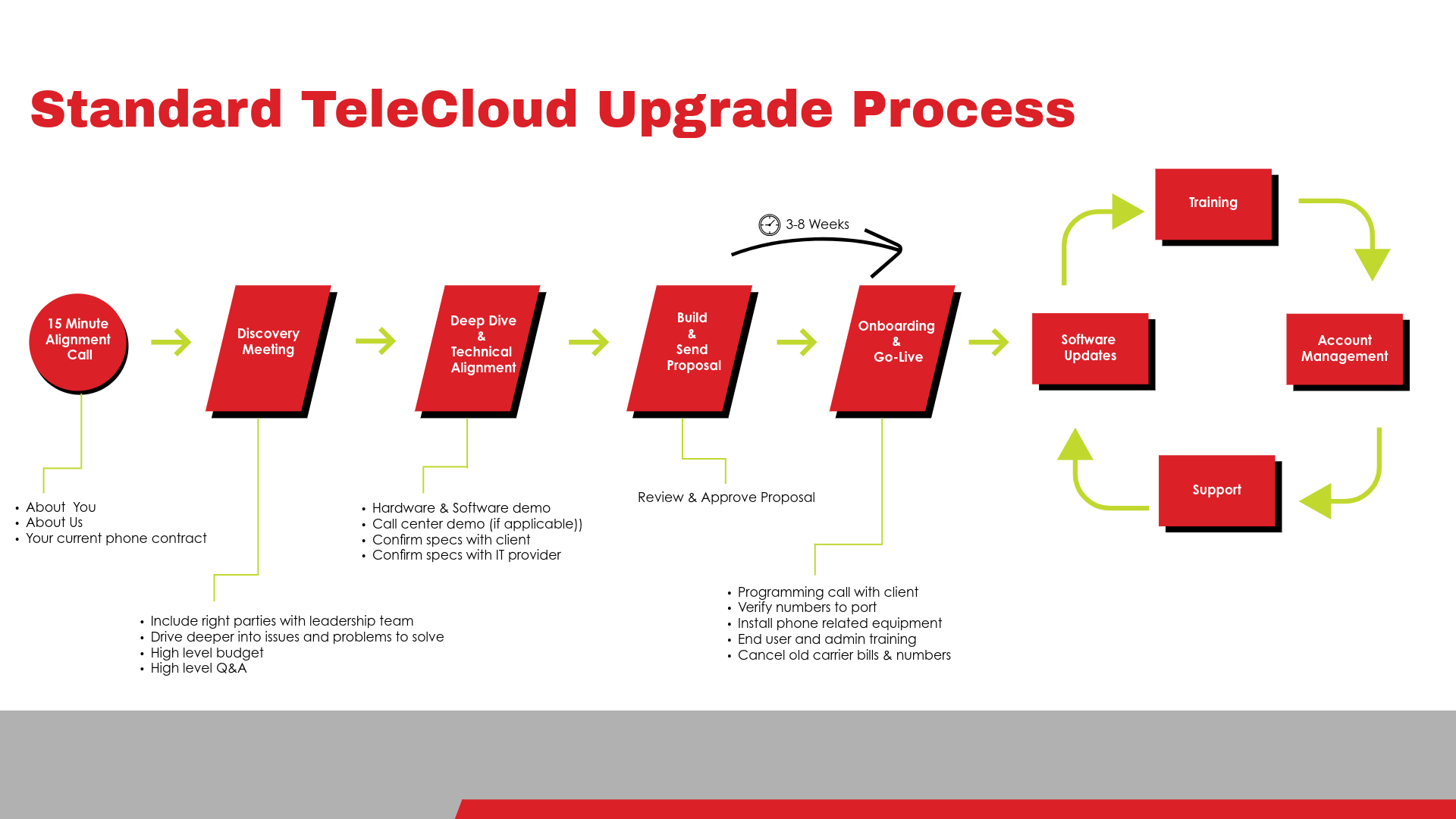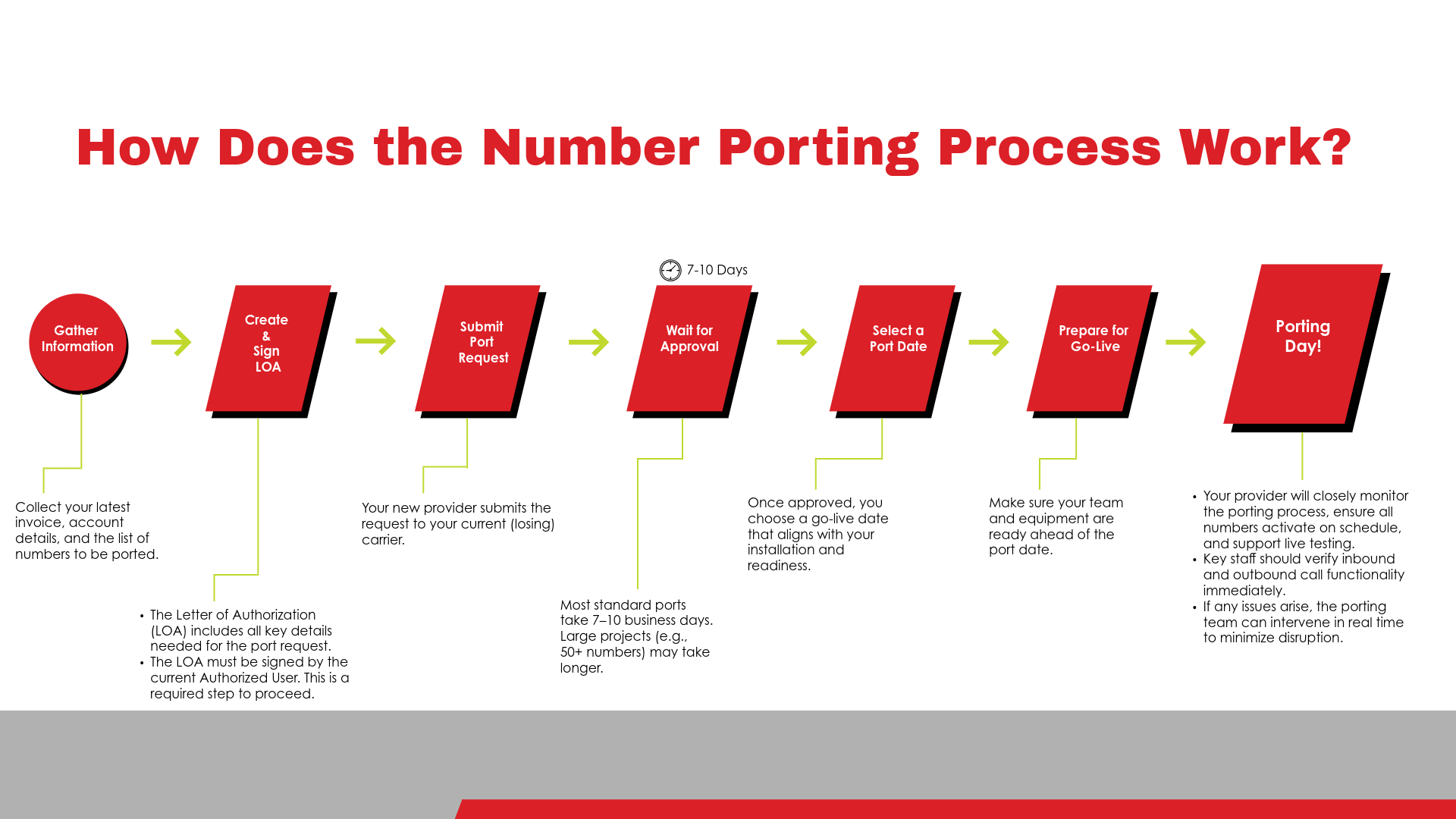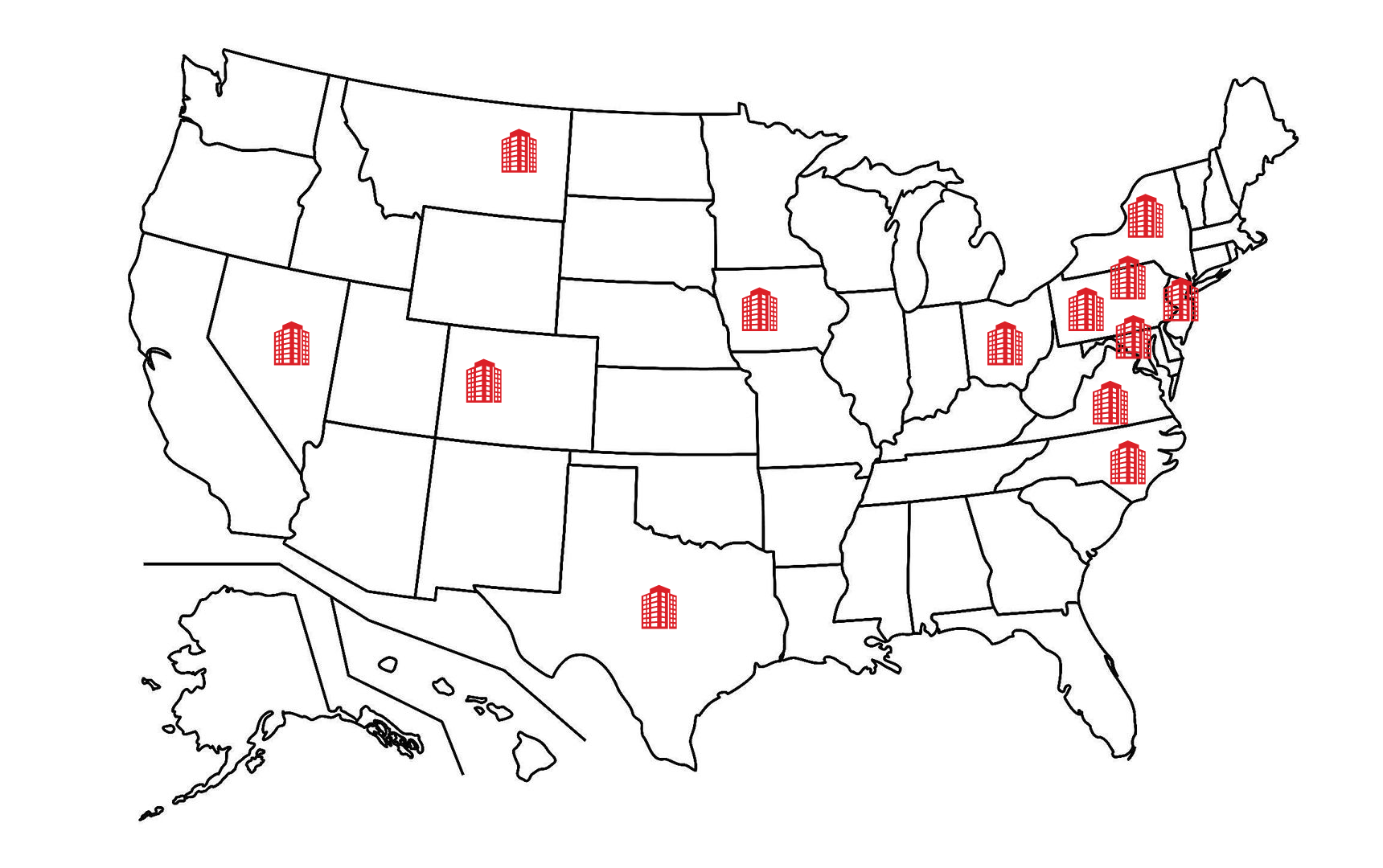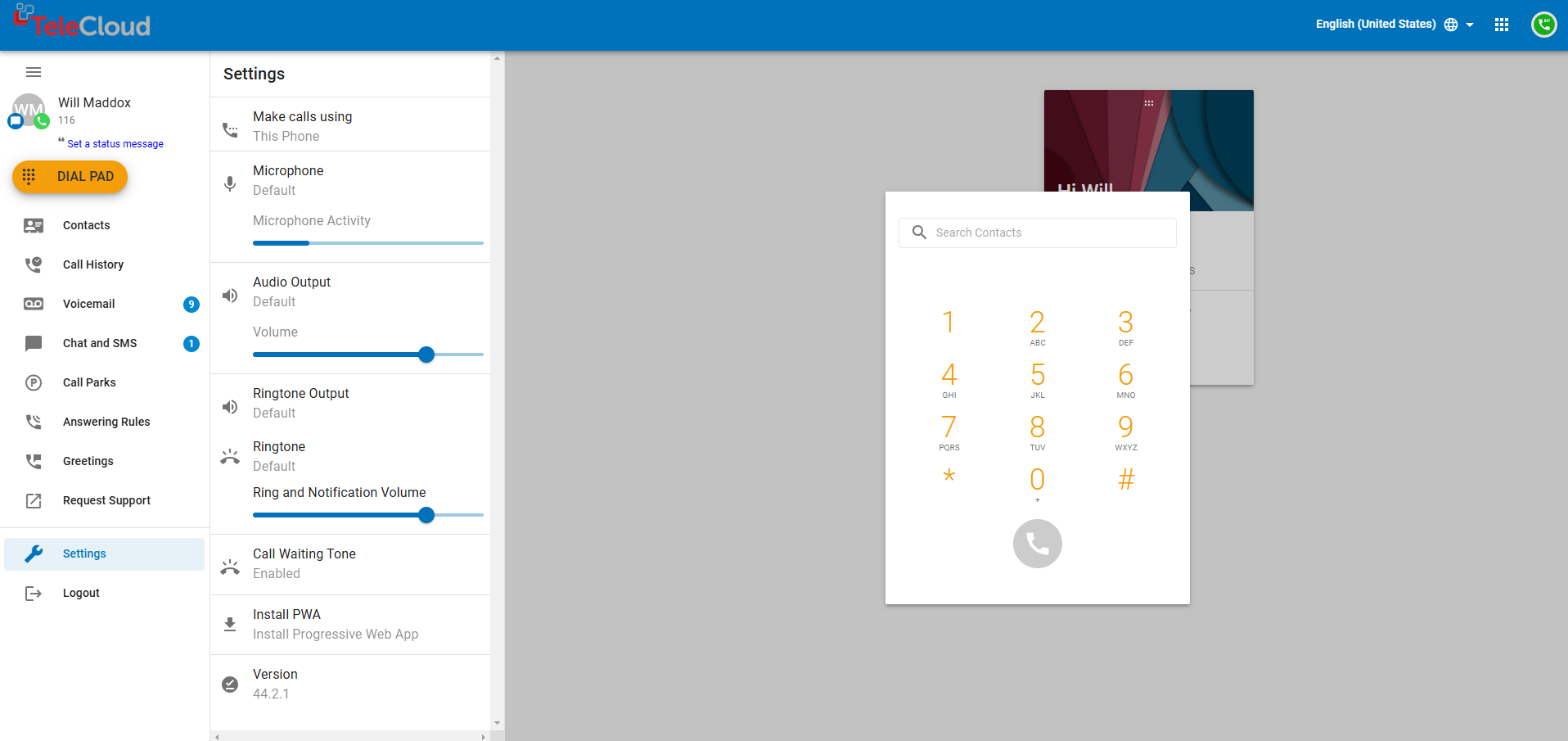Who Are the Best VoIP UCaaS Providers?
March 28th, 2018
4 min read

A phone system can easily be a company’s greatest asset or its biggest liability, so it matters what provider you choose. You, of course, want outstanding hardware and software options and competitive pricing, but don’t forget you also want to work with a company that’s compatible with your size, needs, and location. To start your search, check out these four heavy hitters in today’s VoIP landscape.
Top 4 Players in the VoIP Phone Industry
As of 2017, here are the four VoIP phone providers with the most IP phone endpoints on their networks. These companies are known as “UCaaS” providers (unified communications as a service).
1. RingCentral
Based out of Belmont, California, and featuring offices across the globe, RingCentral is a provider of cloud-based communication solutions for businesses. They are currently the global market share leader within this industry, both in terms of revenue and subscriber seats.
Advantages:
• Highly established. The company was founded in 1999 and, again, currently has the number one global market share in their industry. With a company as secure as that, you can worry a lot less about it going under or getting bought out easily.
• Best-in-class technology. Within this industry, RingCentral is known as a leader in new technology and is consistently ahead of other companies’ software and hardware offerings.
• Diverse products. From auto-receptionist capability and web conferencing to SMS and call logs, RingCentral has an extensive suite of product offerings. They also provide more specialized and advanced options, such as CRM integration and various call center solutions. Their application-based software is robust and can suit the needs of many different companies.
Disadvantages for Small Businesses:
• If you ever need service support, you’ll be dealing with a large corporate entity. This can be frustrating and time consuming for a small business because the person you’re conversing with doesn’t have any prior knowledge of your specific office environment, call flows, or staff who work at your office.
• If you have under one hundred employees, onsite hardware installation and end-user training will be handled remotely. Due to RingCentral’s success, if you’re a small business, you’ll be treated as such. You will not be given any direct attention or face time for sales, demonstrations, or installation/support.
2. Mitel
Headquartered in Ottawa, Canada, Mitel is another global telecommunications company. They focus on unified communications solutions for businesses. Since their 2001 change in ownership, Mitel works almost exclusively now in the VoIP sphere.
Advantages:
• Mitel was officially founded in June 1972. Of the four big VoIP players mentioned here, it’s the most established.
• Mitel began as premises-based manufacturers and migrated to the cloud. In this way, they’ve been adaptive and forward thinking, and this mind-set has allowed them to remain a market leader.
• Today, Mitel offers both premises-based and cloud-based solutions. Some industries (e.g., hotels) aren’t well suited to cloud-based phone options, so Mitel can provide these kinds of businesses with viable solutions. For this premises-based market segment, Mitel offers what other companies cannot.
• Mitel has stayed healthy through savvy business acquisitions. (For example, they acquired ShoreTel in 2017 and Inter-Tel in 2007.)
Disadvantages for Small Businesses:
• If you select a Mitel Cloud Services solution, you’ll have to call into Mitel corporate for support, questions, invoices, and so on. Naturally, if you are a small business with under one hundred employees, you’ll probably feel like a very small fish in a large pond.
• A Mitel premises-based solution will be very expensive for a small business because this setup is really designed for midmarket to enterprise clients.
3. 8x8, Inc.
Founded in 1987, 8x8 began focusing their efforts on videoconferencing software in the early 1990s. By January 1999, they had entered the VoIP sphere, and in 2002 they officially relaunched as a VoIP service provider. They provide many of the same core offerings as RingCentral but currently have less of the global market share.
Advantages:
• Like Mitel, 8x8 continues to grow and thrive through frequent business acquisitions. Through the years, they’ve acquired a litany of smaller telecommunications companies, such as Central Host, Zerigo, Voicenet, and more.
• 8x8 has been around for many years and has adapted their service offerings with the shifts and advancements in the market. They are flexible and responsive to these kinds of changes.
• Offering a range of products, 8x8 provides cloud-based phone systems, as well as features like contact center solutions. This makes them a viable option for a range of companies.
Disadvantages for Small Businesses:
• For smaller accounts (under one hundred users), companies like 8x8 will ship the phones and VoIP router in a box to your front doorstep, meaning they don’t offer onsite installation or end-user training for the small business. As the small business, you must then figure out this installation and training process on your own or with a third-party vendor, such as your IT company. The technology and offerings of a company like 8x8 might be stellar, but the realities of successfully installing advanced phone hardware for the small customer is a massive challenge for companies like 8x8.
4. Vonage
Vonage was founded in 2001 and is currently headquartered in Holmdel Township, New Jersey. While they used to focus primarily in the residential market, as of 2014, Vonage initiated a series of company acquisitions that effectively expanded their presence in the commercial sector.
Advantages:
• Vonage has always been at the forefront of Internet calls, and they bring that insight and knowledge to their product offerings.
• Vonage first attempted to break into the residential side of VoIP and stumbled. (Their residential application of VoIP was arguably too early and ahead of the curve for the global market share.) Regardless, they’ve reemerged successfully on the commercial side. This puts them in a position to service both business and residential customers.
Disadvantages for Small Businesses:
• Getting service from a big company like Vonage can be trying. If you put in a service request for help, it might be two to three days before you even hear back. Vonage is designed to work with large companies that have in-house IT departments, so if you’re small to midsize (about fifteen to one hundred phones), this service aspect can be difficult to successfully navigate.
• Onsite installation is unlikely with a national provider like Vonage. You’ll have to rely on your in-house IT department to do the heavy lifting. If you don’t have this, you might need to pull in a third party to successfully get your phone system up and running. Again, it can be difficult for small companies to have a good overall experience with a company like Vonage.
If you’re a small business in New Jersey (fifteen to one hundred fifty phones) and are looking for an onsite experience (sales, technical surveys, phone demonstrations, installation, and more), please feel free to compare us to the national providers. We’re happy to answer any questions you have so you can make an educated decision. Contact us today!
 By Vincent Finaldi
By Vincent Finaldi
Vice-President, Tele-Data Solutions
E-mail: vin@tele-datasolutions.com | Direct Line: (908) 378-1218
What brings me satisfaction is meeting with New Jersey–based businesses and genuinely helping them solve communication and business problems. As someone who has lived in New Jersey my entire life, I love working and playing here. I live in Morristown with my wife, Lisa, and root for the New York Giants.
vin@telecloud.net OR call/text 908-378-1218
Topics:

















.png?width=1200&height=627&name=Telecloud%20infographic%20ucaas%20sg%20(1).png)
